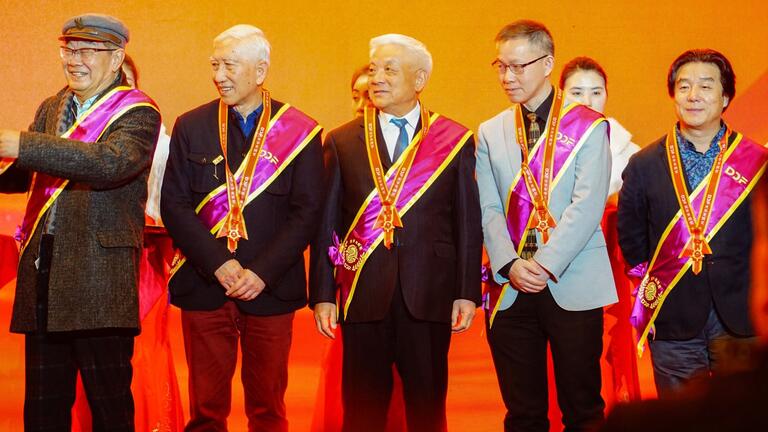Design Alumnus Named One of China’s Forty Designers in Forty Years of Chinese Reform and Opening


Xiangyang Xin, an alumnus from Carnegie Mellon University’s School of Design (MDes ’02, PhD ’07), was recently named one of China’s Forty Designers in Forty Years of Chinese Reform and Opening by the Dragon Design Foundation, the only organization that gives national design awards for individuals in China.
Despite his illustrious career, Xin felt lucky and honored to win the award. Xin was one amongst many of China’s most prestigious engineers and scientists, as well as the chief designer of the Hong Kong Zhuhai Macau bridge and the founder of WeChat. Upon receiving the reward, Xin felt “more responsibility [to give] back to the community,” a sentiment that is in line with his humanistic approach to design.
“Beyond creativity and knowledge,” he says, “it is the deeply rooted humanness and care of others that makes design so meaningful and important.”
Xin has an impressively interdisciplinary range of expertise and talent. He spent his early adulthood studying mechanical engineering in China, followed by a few years of working as an engineer for GM’s Jinbei joint venture factory in Northern China. He then studied architecture and worked as an architect for two years, before deciding to follow his childhood dream of studying art by enrolling at West Virginia University’s Fine Arts undergraduate program, ultimately graduating with a double major BFA degree in painting and graphic design.
Following this, Xin continued to pursue his studies through CMU’s Master of Design and PhD programs, which culminated with his thesis: “Product Innovation in A Cultural Context: A Method Applied to Chinese Product Development.”
While Xin’s educational career is remarkable, so is his professional one. In 2005, in the middle of his PhD studies, he was recruited by Hong Kong Polytechnic University to help start the first post-graduate program for Interaction Design in greater China. In 2012, he became the Dean of Jiangnan University’s School of Design, where he helped the school reform its curriculum and develop its own doctoral program in design. His changes were recognized both by the Jiangsu provincial government and China’s Ministry of Education.
Xin has also served as the chair or co-chair of several major design conferences, such as the ICID (International Conference on Interaction Design), ReDesign Design Education Conference, TTF (Trends of Transformation Forum) Conference, and IXDC (International Experience Design Conference).
Xin’s current endeavor is XXY Innovation, a company that he founded 2 years ago, after he received funding from a provincial government to foster collaboration between education and industry. XXY aims to “empower businesses through understanding the power of wisdom [and] delight people through discovering new meanings of life” by serving as a design consultancy that specializes in strategic planning, product and service solutions, and competence building. In other words, XXY uses design thinking to support organizational innovation and transform technology.
Outside of XXY, Xin’s other major project involves supporting reforestation of desert in northern China. He and his other company rented 20 square kilometers of desert for 30 years in order to plant more trees there.
“It is a tough, but extremely rewarding effort,” says Xin. “My role is to bring design thinking into the effort of reforestation, and help people understand the need of nurturing a suitable social environment that coexist with the reformed desert.”
While Xin has long graduated from CMU, he still recognizes the impact of his education here. He credits CMU “not only [for his] knowledge of design, [but also] more importantly, the attitude and principles towards issues, appreciation of different perspectives, and willingness to work with others.” As a proud alumnus of CMU, he often speaks highly of CMU and feels that it is a great example of how to use education to create more positive impact on the world.
“Beyond creativity and knowledge,” added Xin, “it is the deeply rooted humanness and care of others that makes design so meaningful and important.”